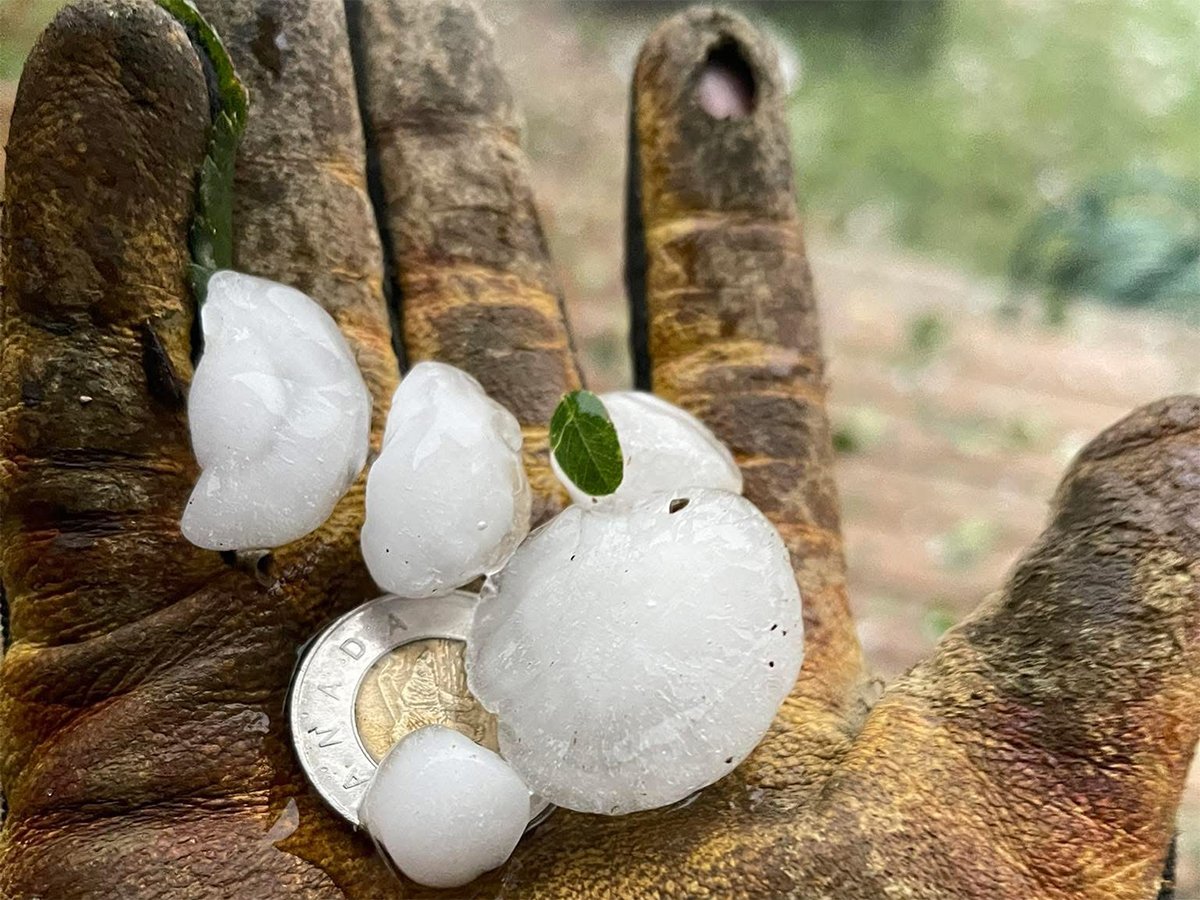Q: Our son has been admitted to a residential treatment program for drug and alcohol addictions.
We are happy that he is there and we want to do whatever we can to help him take on and overcome his addictions. I am not even sure what they are. He seems to drink a lot and I know that he has been into some of the heavier drugs. I guess that does not matter. What matters is that he gets rid of this thing.
What can my husband and I do to support his wife and encourage our son to commit to sobriety?
Read Also

Half million acres of Alberta crops affected by massive hail storm
Late August hail storm catches farmers in prime harvest mode, damaging half million acres of crops in Alberta.
A: As good and as dedicated as our residential treatment programs for drug and alcohol addictions are, there are significant limits on what they are able to do. Essentially most programs can guarantee a start to sobriety, signing their clients on for five or six weeks with no toxic substances around, and during that time helping their clients understand both the nature of addictions and some of their own peculiar personal and individual problems that often contribute to their toxic problems.
Treatment programs committed to the 12-step program followed by Alcoholics Anonymous can start their clients in meetings and give them some confidence to join community Alcoholics Anonymous groups once they leave their treatment centre. But that is it. That is all that the treatment programs can reasonably do.
The real treatment for addictions starts once clients leave their programs and head out to face the challenges in their communities.
For this reason what you want, what your daughter-in-law wants and what your son needs is a well-developed discharge program to support him once he leaves his treatment program.
If you are not sure about your part in this recovery, make an appointment with your community addictions counsellor to help you understand some of what your boy is about to experience. You might take his wife with you to the appointment if she is OK with attending.
The discharge program itself begins by appreciating that much if not all of your son’s social and interpersonal life before treatment rotated around drug and alcohol abuses common to all of our communities. This has to stop.
Friends your son had while he was using are no longer friends. In fact they are the enemy to his sobriety and the less he has to do with them, the better are his chances for recovery.
He needs new friends but that takes time and he needs to be patient.
Recovery is a lonely and isolating experience. I am not sure that anyone can complete their treatment without a few moments of despair, but your son can share with others who have been through similar experiences. Encourage him to go to both Alcoholics and Narcotics Anonymous meetings.
This is a bit of a lifeline for him. It is his one opportunity to share with others what he is experiencing and know that he is being understood. In some of our larger communities Alcoholics Anonymous meetings are found just about any time of the day and most often almost every day. Many people in your son’s position, who are recently discharged from treatment programs, cannot seem to attend enough meetings. That is their prerogative. They should be encouraged to go as often as they need to attend to their addictions.
Finally, as much as we are hesitant to admit it, relapse, or falling off the wagon, is a strong possibility.
No one likes relapses. It is discouraging for everyone — for you, your son and most certainly for his own family. But it happens, and if you have a plan in place telling you what you might do to prevent relapse and how to deal with it if it happens, you can get through it without permanent or serious damage. The more you and your son are prepared for relapse the better the odds that it will quickly be resolved and your son’s treatment can resume.
You are in for some tough times for you and your family. Hang in there. It is worth the effort in the long run, and if at times you find the road a little too rough, call Alanon and get some support from other families who are struggling with their addicts.
Jacklin Andrews is a family counsellor from Saskatchewan. Contact: jandrews@producer.com.















